| |
| |
| |
| Presented By PhRMA |
| |
| Axios Vitals |
| By Tina Reed · Sep 06, 2022 |
| Welcome back from the weekend, everyone. Today's newsletter is 1,062 words or a 4-minute read. |
| |
| |
| 1 big thing: Republican campaigns are silent on health care |
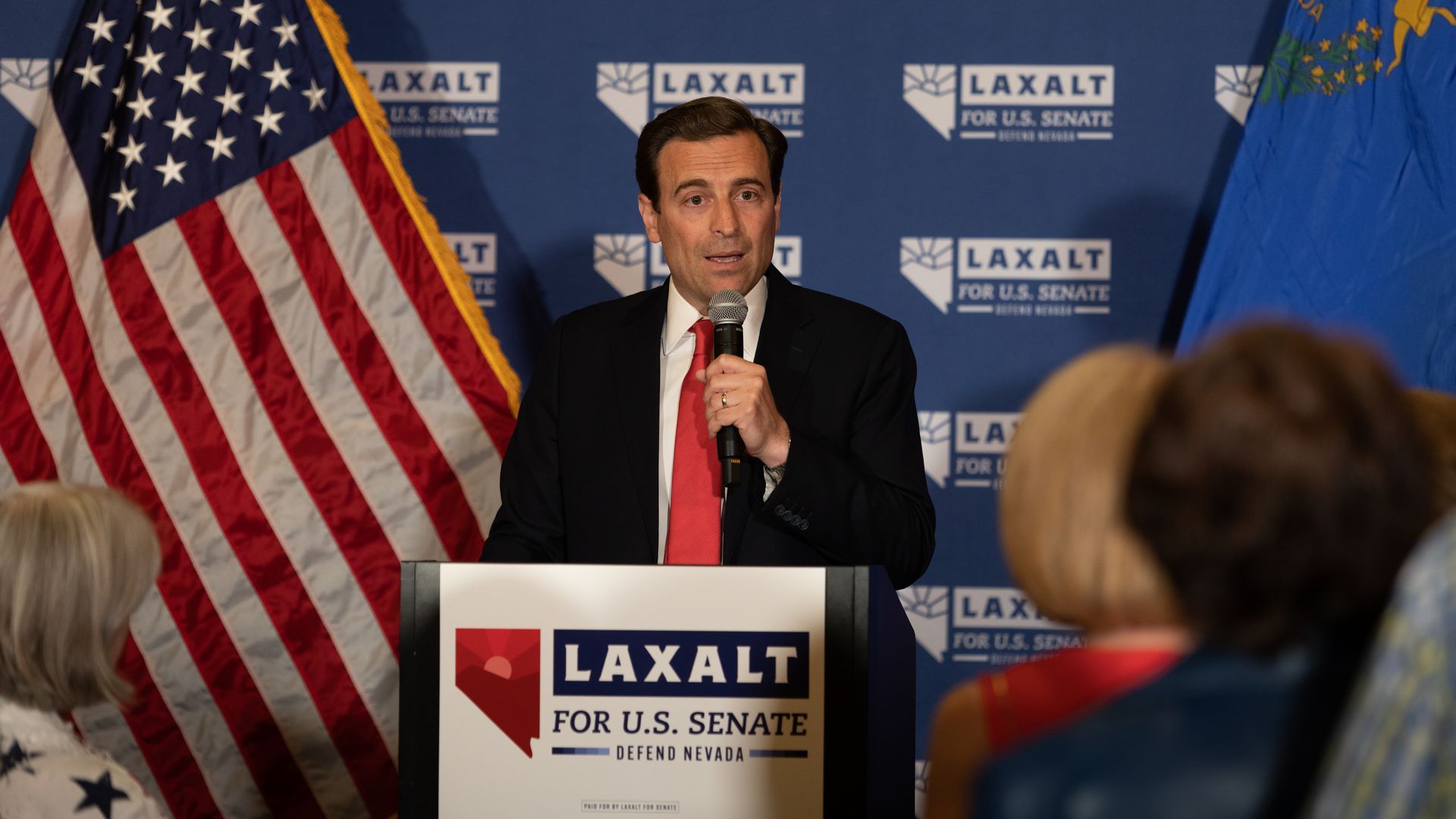 |
|
| Republican Senate candidate Adam Laxalt speaks to a crowd on June 14 in Reno, Nevada. Photo: Trevor Bexon/Getty Images |
| |
| Republicans in tight congressional races are going silent on health care, scrubbing campaign websites of anti-abortion language and in some cases distancing themselves from past criticisms of the Affordable Care Act, Axios' Victoria Knight writes. Why it matters: It's a marked contrast to vulnerable Democrats, who've been campaigning nonstop on enshrining abortion rights and the Inflation Reduction Act's health care provisions. - And it begs the bigger question of what the GOP's health care agenda will look like if the party flips control of one or both houses of Congress.
A review of candidates' websites and past statements found that even hard-liners endorsed by former President Trump have dialed back language on social media channels and eschewed positions like repealing the ACA. Between the lines: This kind of distancing makes sense, said Republican strategist Brendan Buck. - "Republicans have been talking about health care for the last decade almost exclusively around repeal and replace. We found out the hard way that it's not a winning issue anymore and backed off of that entirely."
- The GOP wants to make these midterms about the economy, Buck said. "It's not bias against health care. But, if it's not inflation, gas prices, then it's not a front burner issue."
Flashback: Republicans failed to repeal the Affordable Care Act in Congress, and a case to invalidate the law brought by a group of GOP attorneys general was thrown out by the Supreme Court in June 2021. - But Republicans had scored big electoral wins on health care in the past, like in 1994 over former President Clinton's universal health care plan and in 2010 in response to passage of the ACA.
What to watch: If the GOP does take control of the House or Senate, Buck expects that Republican focus for health care policy will be much smaller in ambition and focused on issues like expanding telehealth or the use of health savings accounts. Go deeper. |
    |
| |
| |
| 2. Travel nurses start to leave the field |
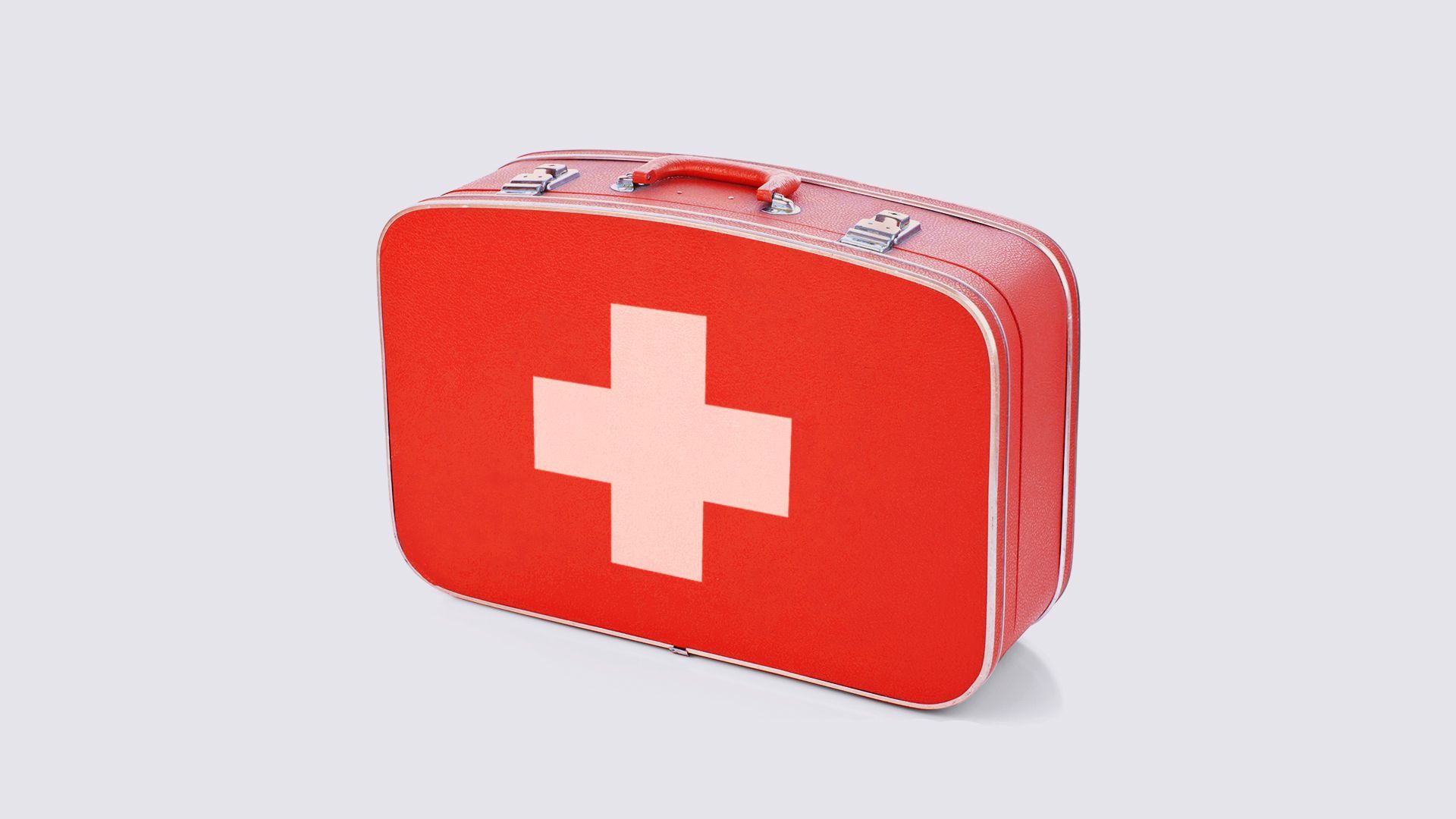 |
|
| Illustration: Natalie Peeples/Axios |
| |
| Nurses lured by the promise of big paychecks for travel gigs during the pandemic are starting to follow other nurses in leaving the profession, NBC News reports. Why it matters: Gaps in the health care workforce are a growing concern as longtime employees, particularly nurses and others on the front lines, have begun leaving the field. - Travel nurses, meant to be a temporary fix, have become a major cost for hospitals at the same time their employees are increasingly mobilizing for increased pay and benefits.
But as the strain from COVID has dissipated and demand for travelers has fallen, those nurses aren't necessarily going back to their old jobs at facilities, unions and nurses said. - "People say it's burnout but it's not," Pamela Esmond, a traveler nurse from northern Illinois said, per NBC. "It's the moral injury of watching patients not being taken care of on a day-to-day basis. You just can't take it anymore."
|
    |
| |
| |
| 3. Where premium dollars are going |
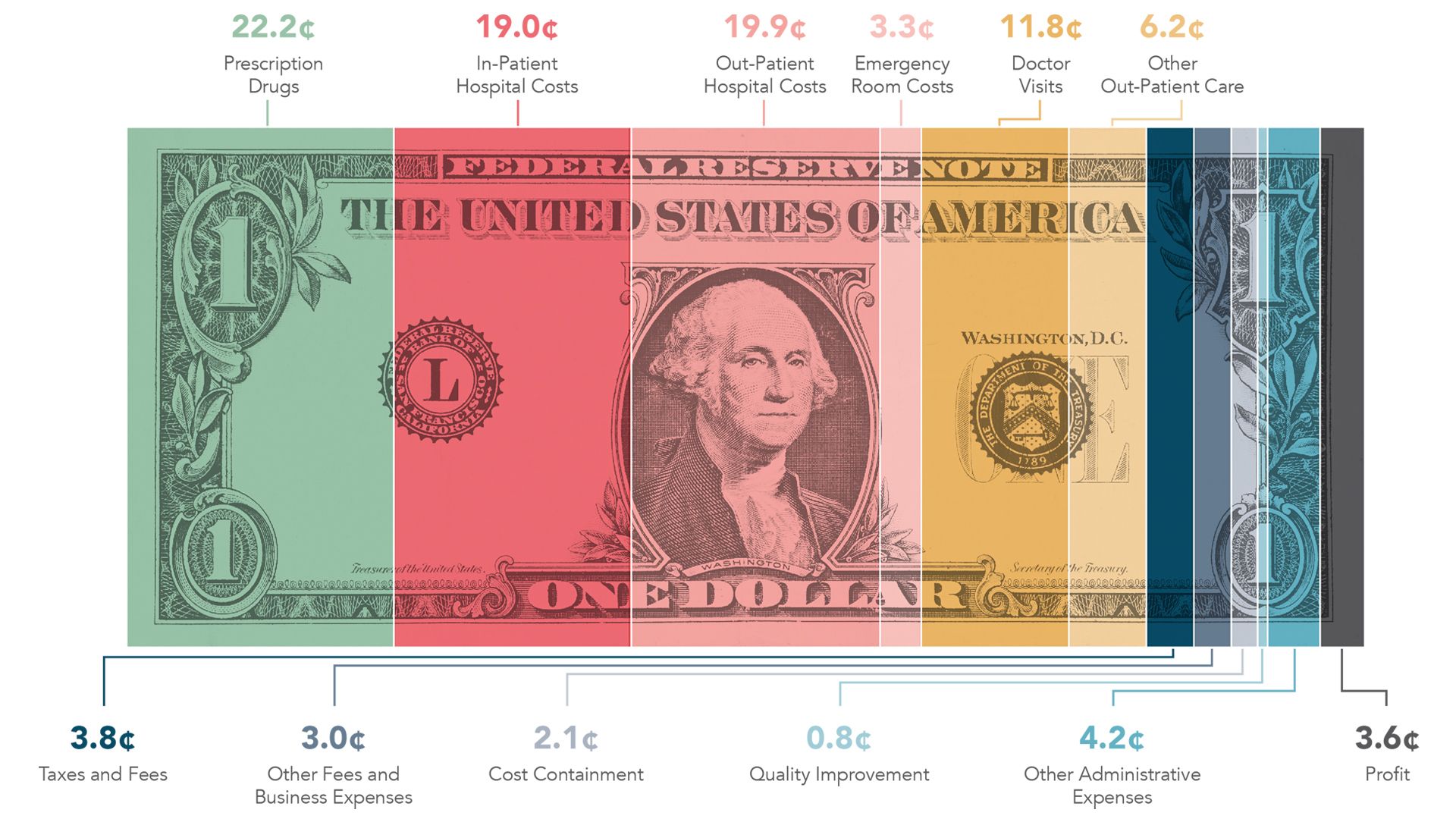 |
|
| Visual: AHIP |
| |
| For every insurance premium dollar spent, 82.4 cents goes to prescription drugs and medical services, according to an analysis from AHIP looking at the three-year period between 2018 and 2020. - That's up from 81.6 cents that the health plan lobby found in its last analysis, in 2020, which was based on the period between 2016 and 2018.
Some context: The Affordable Care Act required insurers to cap the share of premium dollars used to pay medical claims or to improve the quality of care to between 80% and 85%. Prior to that, many insurers were far lower than that. - AHIP says this analysis, which uses averages from commercial health insurance plans, shows the bulk of premium dollars go toward health spending.
- But they als0 say this breakdown also shows that spending on health services and drugs remained high, even factoring in the first year of the pandemic, where health care utilization was at historic lows.
"All these policies we've been talking about whether it's the role of the FTC, or having more competition is all so important because of where premium dollars are going," AHIP senior vice president Jeanette Thornton told Axios. Zoom in: AHIP analyzed three years of data between 2018 and 2020 from the commercial market, including plans provided by employers and individual plans purchased through Affordable Care Act exchanges. - Spending on prescription drugs made up 22.2 cents of every dollar in the period ending in 2020, up from 21.5 cents in the period ending in 2018.
- Spending on inpatient and outpatient costs made up 38.9 cents of every dollar in the period ending in 2020, holding steady with spending of 38.8 cents in 2018.
- Insurer operating and administrative expenses made up 13.9 cents of every dollar, down from 15.3 cents in the period ending in 2018. Insurer profits were a bit higher, at 3.6 cents in the period ending in 2020 compared to 3 cents of every dollar ending the period in 201
Be smart: There are some limitations that can skew this sort of analysis, according to a JAMA Forum article in 2017 by the late Uwe Reinhardt, a health economist at Princeton University. - For instance, it's based on simple averages rather than weighted averages and doesn't take into account the revenue of each company meaning profit margins, for instance, are much higher for some companies.
- And of course, health care providers might argue a great deal of their costs are spent interacting with health plans, the piece pointed out.
|
    |
| |
| |
| A message from PhRMA |
| Health savings for patients, not middlemen |
| |
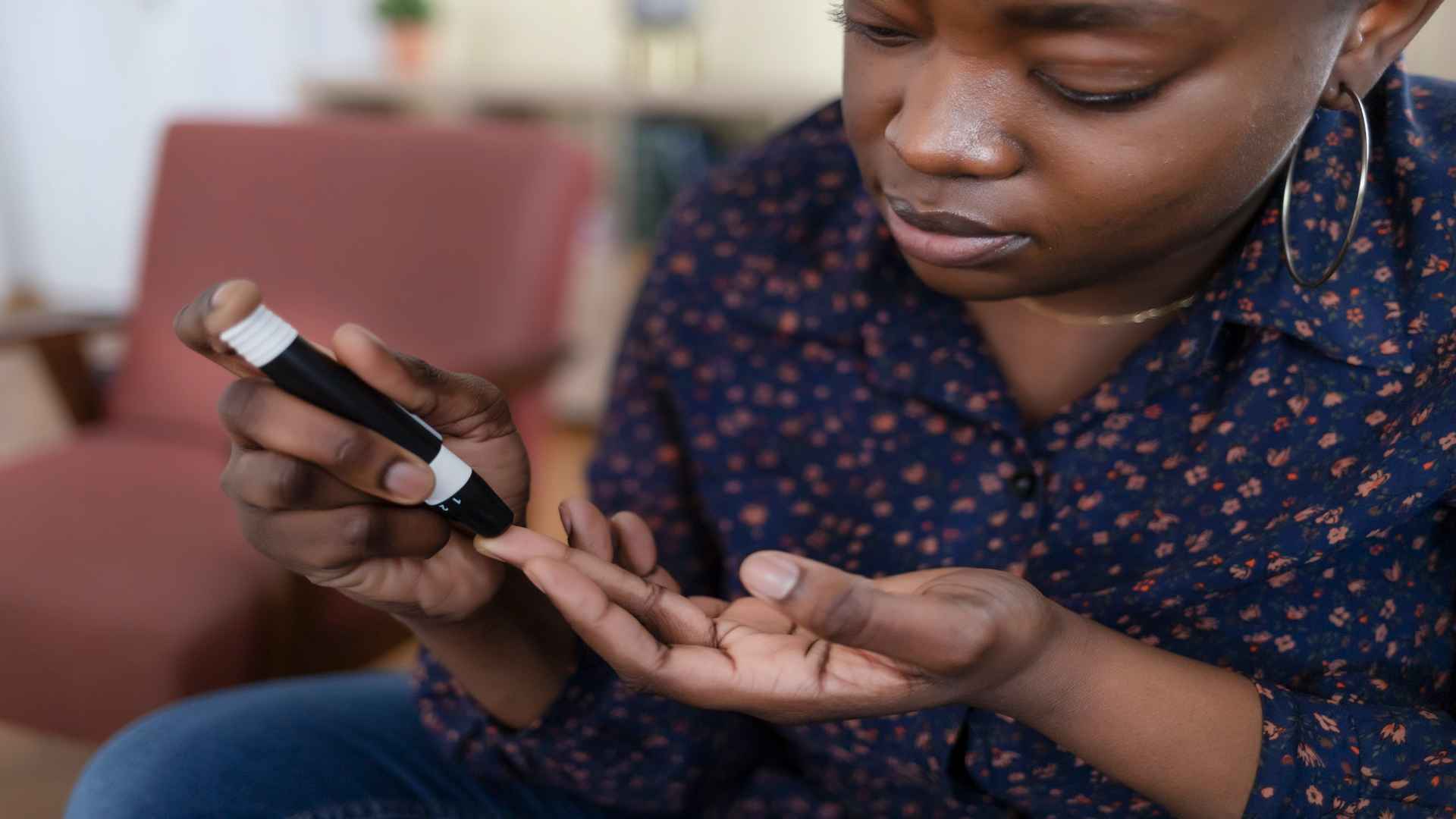 |
| |
| Rebates and discounts from manufacturers lower the cost of insulins by more than 80% on average — but insurers and PBMs usually don't share these savings directly with patients. Next steps: Fix harmful insurance practices and lower out-of-pocket patient costs. Here's what you should know. |
| |
| |
| 4. Pic du jour: Dangerous heat extremes |
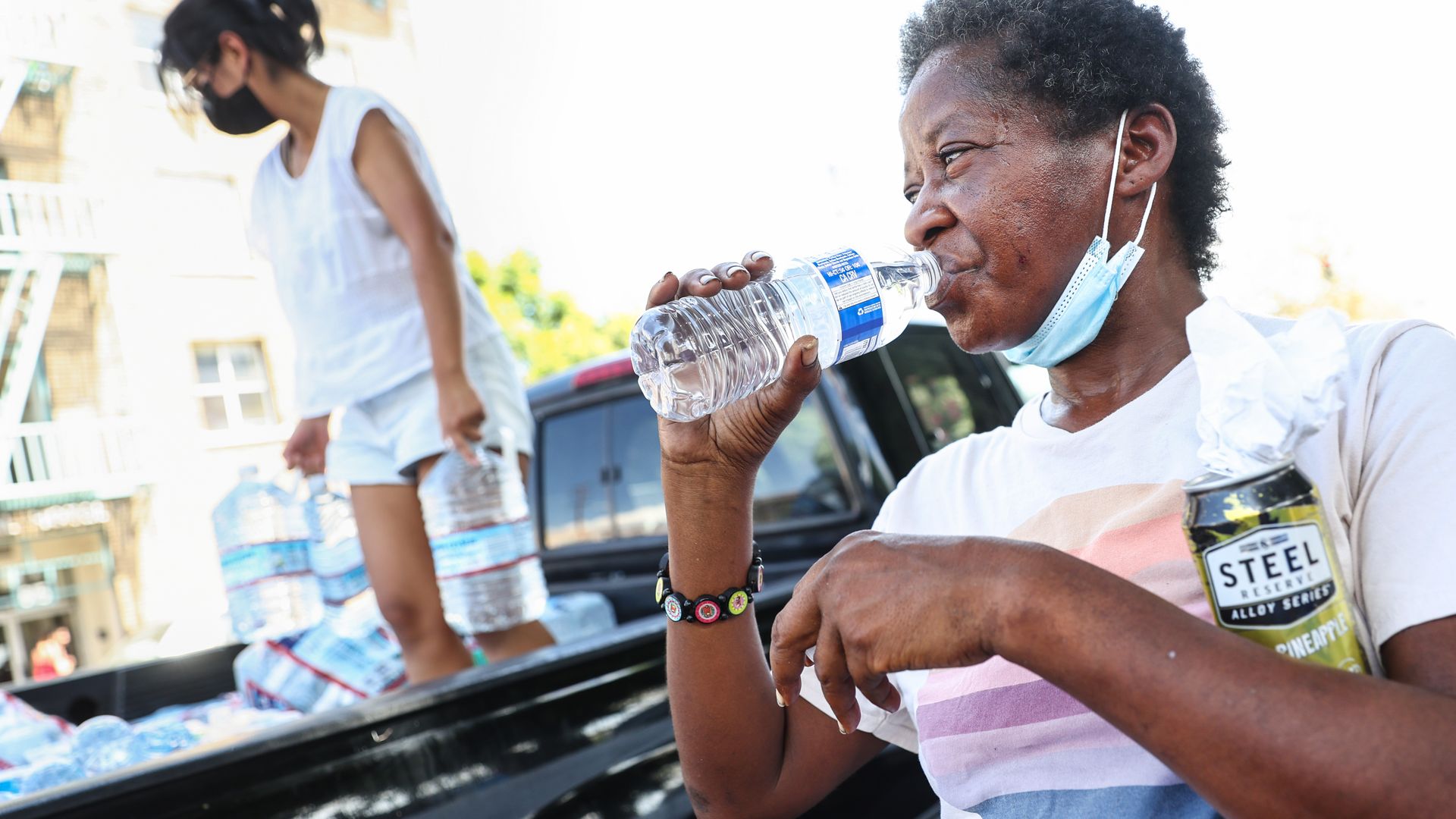 |
|
| Photo: Mario Tama/Getty Images |
| |
| A person on Los Angeles' Skid Row drinks water distributed by volunteers with Water Drop LA in Los Angeles during an intense heat wave over the weekend. - Temperatures hovered around 100°F in downtown L.A. amid the extreme heat which stretched across Southern California. The National Weather Service predicts the excessive heat to continue for most of Southern California through Wednesday.
The big picture: This is one of the West's worst-ever September heat waves, which brought a prolonged period of record-shattering and dangerous temperatures to at least a half-dozen states, Axios' Andrew Freedman writes. |
    |
| |
| |
| 5. While you were weekending |
 |
|
| Illustration: Aïda Amer/Axios |
| |
| 👀 The FTC is investigating Amazon's deal to acquire One Medical. (Wall Street Journal) 👉 CVS will buy home health giant Signify Health for about $8 billion. (CNBC) 💰 The Biden administration is requesting $47.1 billion in emergency funds as part of a short-term spending bill, including money to cover ongoing needs associated with the COVID-19 pandemic and the response to monkeypox. (Roll Call) 💊 Catholic health institutions' wide reach can make it hard to get birth control in many places. (NPR) |
    |
| |
| |
| A message from PhRMA |
| Congress should address the system we use to pay for medicines |
| |
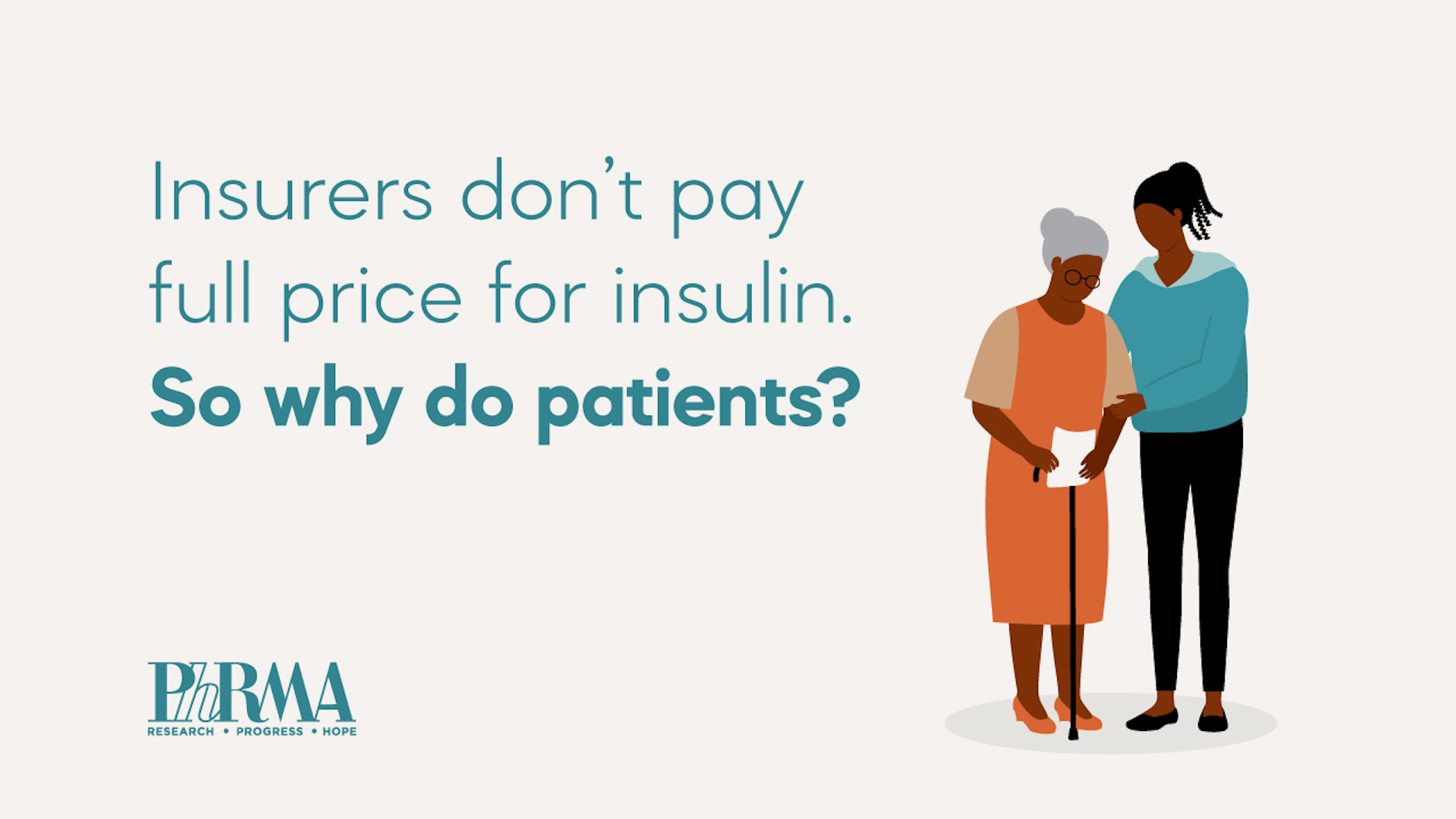 |
| |
| Insurers and PBMs receive discounts on insulins from manufacturers but don't usually pass these savings directly to patients. The impact: Patients are burdened with higher than necessary out-of-pocket costs. Learn more. |
| |
 | | Why stop here? Let's go Pro. | | |









No comments:
Post a Comment